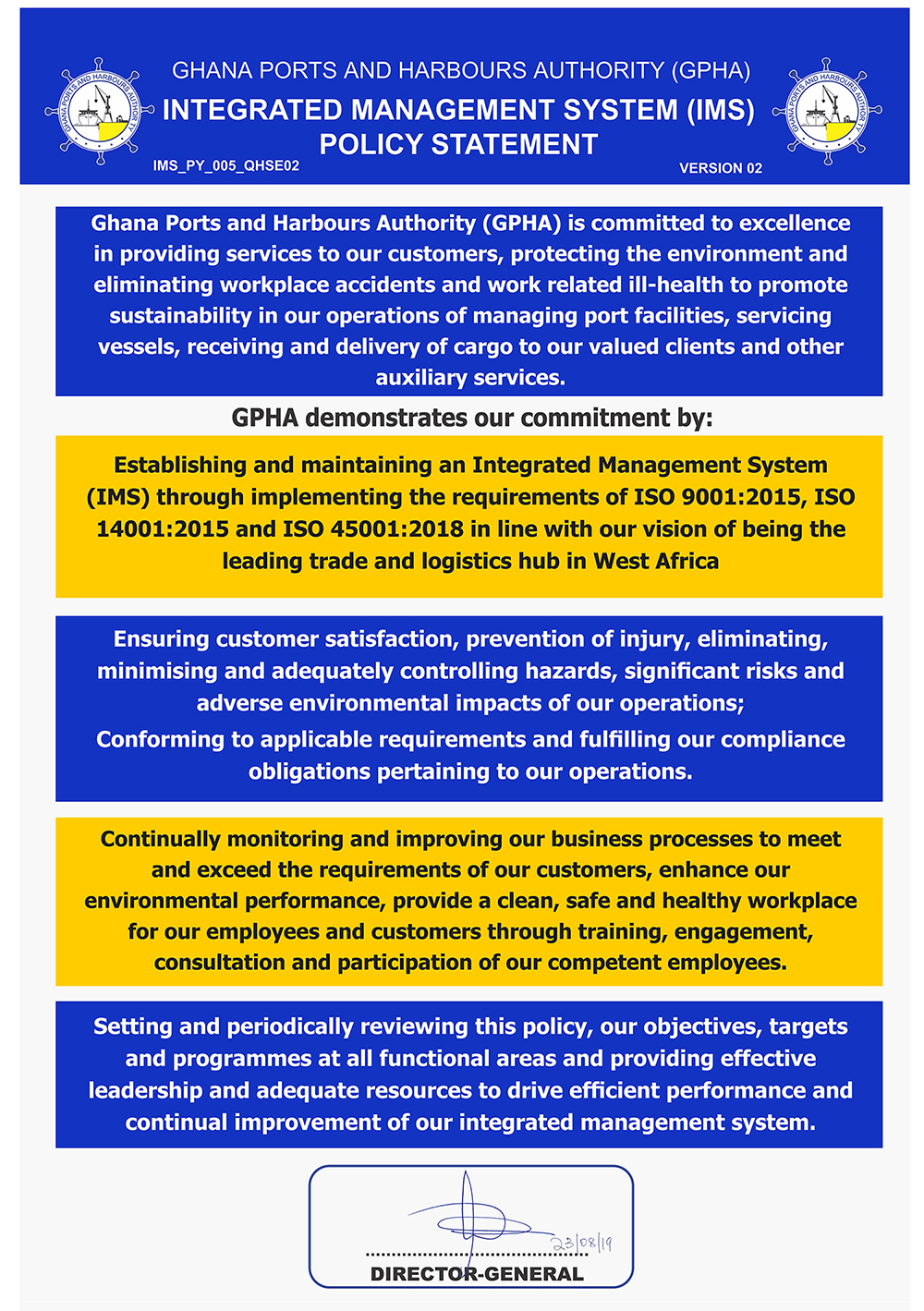

Ghana’s ports saw a steady increase in its transit traffic of 1.5 million metric tons last year, compared to 1.3 million metric tons in 2019 while seeing a significant increase in its transshipment traffic of 602,778 metric tons in 2020 compared to 90,158 metric tons in 2019 in spite of COVID-19.
These figures are further supported by the fact that 229,650 metric tons of Ghana’s port transit traffic were from coastal countries with ports.
According to the General Manager in charge of Marketing and Corporate Affairs at the Ghana Ports and Harbours Authority, Mrs. Esther Gyebi-Donkor, this is indicative of the strides Ghana’s ports have made towards becoming the preferred trade and logistics hub in the sub region.
“Out of the figures from the coastal countries, I can tell you for a fact that Abidjan is the highest in there whereas we have people coming from Lomé and a few from Benin. This should tell you that there is something special about Ghanaian ports,” she expressed.
The General Manager in Charge of Marketing and Corporate Affairs at GPHA said the MPS Terminal 3 at the Port of Tema, which currently has 3 out of 4 berths completed, boasts of adequate infrastructure consisting of 16m draft and 1400m quay length making it possible to cater for the largest vessels carrying up to 20,000+TEUS.
She said this investment is further consolidated by the availability of modern equipment such as 7 Super Post Panamax Ship to Shore Gantry Cranes, and 20 Rubber Tyre Gantry Cranes, making it capable of handling 2,000,000 TEUs per year.
Mrs. Gyebi-Donkor said the availability of infrastructure, strategic geographic location, flexible port charges, top notch security, labor efficiency and deliberate policy direction makes the Ports of Ghana attractive to its clients which include the local Ghanaian trading public, economic operators from the landlocked Sahelian countries, and even some importers and exporters from other coastal countries.
She said the Ghana Ports and Harbors Authority has been deliberate in the pursuance of customer oriented policies and activities that woo the international trading community to use its ports.
“Our charges are preferably cheaper and the other incentives we give to them like the warehousing facilities. We have special arrangements where those who bring in huge volumes of transit cargo, are given 60 days instead of the usual 21 days to get their cargo out of the Port” Mrs. Gyebi-Donkor elaborated.
She also revealed that receipt and delivery charges at Ghana’s ports have been deliberately made cheaper in order to bring relief to the local trading community.
In responding to how she would rate the Ghanaian ports as far as efficiency in cargo clearance is concerned, Mrs. Gyebi-Donkor answered by saying that remarkable successes have been Chalked.
She intimated that the implementation of the Single Window is a sure way to achieve efficiency.
“The Ghanaian Ports were a bit late in fully implementing the Single Window System since Cotonou and Lome for example took the lead but the gains made by Ghana in the short period is commendable. has made our Ports efficient”.
She highlighted the significant gains made from automation in the ports, such as the Paperless Port Clearance Processes and the implementation of the Integrated Customs Management System (ICUMS) which has not only streamlined the activities of statutory agencies operating in the clearance chain, but has impacted the cost of doing business at the ports considerably.
According to her, the process has increased automation at the Ports and optimized business process to the benefit of customers. Processing time has also been reduced significantly.
Customers cost in accessing invoices, paying and taking delivery has been reduced due to the ease of accessing GPHA’s services and charges.
Also, falsification of documents has reduced through system integrations with other stakeholders resulting in increase in revenue.
Mrs. Esther Gyebi-Donkor also underscored the contributions made by the Vibrant Freight Forwarding Fraternity that operates in the Port.
She indicated that GIFF and ACHAG has been doing well by giving feedback on the Port Clearance System.
They make constructive criticism and propose solutions for improvement. Mrs. Gyebi-Donkor emphasized that all the above have made the Ghanaian Ports more efficient.
She revealed that the paperless port project in particular coupled with the general performance of the Port of Tema has led to GPHA consistently chalking many peer review awards over recent years.
Mrs. Gyebi-Donkor disclosed, “we have been best in container terminal productivity since 2016, 2017 and 2018.”
The General Manager in Charge of Marketing and Corporate Affairs at the Ghana Ports and Harbors Authority said GPHA has also deployed a platform for e-payments for clients to improve ease in doing business at the ports.